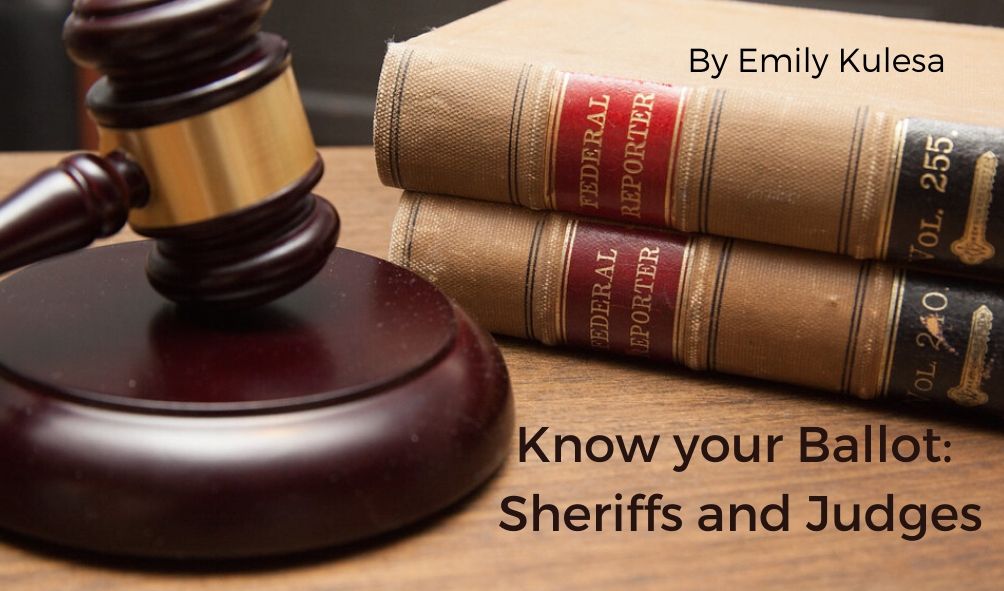Know your Ballot: Sheriffs and Judges

By Emily Kulesa
Down ballot voting seems pretty standard. You know the basic races: state senators, mayors, local councillors. But there are some races that you would not expect to see on your ballot, like sheriffs and judges. That’s right, in the USA, we hold elections for law enforcement and justice system jobs.
Every year, local law enforcement elections place candidates into roles that in other countries would be filled through traditional processes with applications, interviews, and training. In many parts of the country, these judges and sheriffs run unopposed, with some voters not even realizing that there is an election for these positions! I remember my first time voting and being surprised to see my classmate’s mother running for the position of Family Court Judge in our county. It seemed odd to me at the time that you would need to focus on a good campaign rather than your legal merit to hold such an important office.
So why do we elect judges and sheriffs? Some believe electing sheriffs and judges holds them accountable to the public. However, this then pressures the candidates to promote ‘hard on crime’ stances that disproportionately impacts communities of colour. John Oliver’s Last Week Tonight piece on judicial and attorney general elections showed a few of the campaign ads from the candidates. Many bragged about how many people they convicted or sent to prison. Some even used targeted ads to suggest that judges who did not send all defendants to prison were weak and not good at their job! This is obviously problematic as one could argue a good judge may see alternatives to prison as a way to help the defendant change their ways. Campaign finance also comes into questions. If judicial and sheriff candidates take campaign donations from corporations or industry lobbying groups, they may be inclined to act in their favor. For example, if a candidate running for office takes a large donation from a prominent law firm, they may be inclined to rule in their favor. Industries like private prisons can also sway influence to encourage higher incarceration rates.
As we have seen with the recent Black Lives Matter protests, we are in dire need of change in how our law enforcement agencies work. When you elect sheriffs and judges, make sure they are not only fair and unbiased, but are open to having dialogues with local community leaders. This current movement shows us just how important strong leadership is in making systematic changes and improving relationships with community members. The trial (and subsequent pardon) of Sheriff Joe Arpaio illustrates how deep rooted the systematic racism and obsession with power is in America’s law enforcement leadership ranks.
As I am sure you have heard, 2020 is an extremely important election year. Do we want to get Trump out of office? 100%. But we also must work to get Trumpism out of our state and local offices. We have seen numerous candidates since 2016 flaunt Trumpism to promote their bigoted and racist ideologies as an argument for their election. The positions of justices and sheriffs can not be decided upon by these standards. It is important to note here that not all candidates running for judicial or sheriff positions are driven by Trump’s similar ideologies. Many chose these careers to help and improve their communities. This is why it is so important to keep up to date with what these officials are doing and to support those that promote positive changes in society.
Races to watch:
With these local elections, it can be hard to narrow down specific races which could be of importance. However, I would recommend looking up your local district to see who is running for these positions. Ballotpedia is a great free online service that allows you to look up these candidates and get back round on their stances of certain issues. If your candidate runs unopposed, stay informed after their election! If these positions are elected to keep them accountable to the public, then it is your right to do so.



